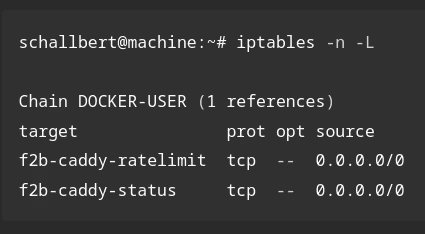PeerTube instance migration
Brief definition
Fediverse?
Fediverse calls something Fediverse when several providers use the same protocol to allow users of these providers to interact freely with each other on digital media. This creates highly interconnected but decentralized services, where free choice of provider is part of the concept. The Verge goes into detail here for your reference.
PeerTube?
PeerTube is a decentralized video platform where multiple servers share the load and viewers can also help distribute videos. Roughly speaking, PeerTube is to YouTube what Mastodon is to X.
The Reason
This article begins with an email.
“You’re receiving this non-automated email because you’re one of the handful of people who has a video hosted on this PeerTube instance. I have decided to shut down this service […]” - Tom, scitech.video administrator
He was really sorry, but continuing to operate the instance would cost too much time, maintenance, and money. Furthermore, the platform is currently underused, so the effort seems disproportionate.
So far, so understandable.
Tom’s Story: scitech.video

Since I had uploaded and linked all my videos there, I was very interested in the background. So I asked for more information. My questions were answered comprehensively and promptly.
The Beginnings
Tom set up his PeerTube instance in 2019. Originally to share his own content. Shortly thereafter, he opened the hosting service to others, albeit with some unease 1.
From an admin perspective, such a video platform seems like the “Wild West”. Ensuring healthy growth for its offerings has proven quite difficult, especially because of the many bots and advertisers involved.
“Growing the service turned out to be challenging. Every time I opened registrations spambots started creating accounts easily and uploading videos with advertisements in the video descriptions […]” - Tom, scitech.video administrator, via E-Mail
Lots of bots and unwanted users around
While he was always able to prevent these unwanted spammers, scammers, and advertisers from contaminating scitech.video, this still meant constant work and manual monitoring of the automatic rejection and moderation tools.
At this point, I’d like to agree with Tom. I have an average of about 340 failed connections from external IP addresses to my server per day, which I then block. On the ssh port alone. And my server is neither particularly large nor well-known, nor can it be considered a worthwhile target. Not to mention the countless attempts to access my Gitea user interface, crawl the website for hidden links, and much more.
For operators of a portal that also grants external users write access (videos, descriptions, tags, comments), the problem is even more serious. Unlike my site, participation is part of the concept here.
Copyright?
Exactly. From the platform operator’s perspective, every video is fundamentally subject to copyright or related rights. But is the user who wants to publish this video also the author? Or has this person acquired usage rights?
Depending on the country and the associated legal situation, administrators must address this issue very carefully. High penalties can be imposed on both administrators and users if a copyright infringement occurs.
The former, at least in Germany, can be resolved according to a Federal Court of Justice ruling of October 23, 2024, as follows: “[…] after a clear indication of a violation of law, the content posted there must be checked for similar violations within the scope of what is technically and economically reasonable, and infringing content must be blocked or deleted.”
However, due to the authorities’ strong focus on specific subject areas, violations are usually quickly noticed – because users can also “report” posts.
The legal situation for social networks
Some countries are currently preparing laws to protect children and young people from using social networks and the associated dangers. For reference, here is a link to the Federal Agency for Youth and Media Protection. Here, too, the administrators are required to implement these rules – but how?
At least, this is what Tom is asking himself, given the increasingly diverse legal interpretations of different countries.
Updates and Maintenance
“PeerTube upgrades were a bit of a drag because everything was tightly coupled with their specific nginx configuration, with breaking changes that had to be adjusted every couple of minor versions.” - Tom, scitech.video administrator, via email
The work isn’t particularly difficult to perform, but it does take a lot of time. As with other software, it can happen that a PeerTube server won’t boot after an operating system update, for example, or that incompatibilities arise between different software versions or modules.
For performance reasons, testing proves difficult, so work is often carried out directly in “Prod.” In the event of an error, live operation suffers.
The configuration is relatively complex and has to be adapted to the hardware. Major PeerTube updates also require changes here.
Conclusion
“I’m also disillusioned about the fediverse generally as a communication medium. A constant battle against spam/LLMs, so much anger, so much focus on follows, likes, and boosts.” - Tom, scitech.video administrator, via email
Tom is frustrated that the attention economy is taking hold here as well. Although conceived as ad-free and rolled out as a small grassroots movement, instances created out of idealism are quickly misused for advertising and self-promotion. The costs also amount to several hundred dollars a year, which further worsens the cost-benefit ratio.
One solution here, according to Tom, could be “a return to Web 1.0 or closed communities,” as already exists on Meatspace, Matrix, Discord, etc.
All the other factors also make it difficult to continue operating his instance: The user base never grew particularly large, and there are only a few people who still upload their content there. As a father, he now has much less time available and must prioritize projects. Thus, he is now ending his six-year journey as a provider on the Fediverse.
I wish Tom continued strength, idealism, and enthusiasm for the future.
Jan’s story: makertube.net

Since I now needed to look for a new hosting platform for my videos, I tried searching for “video-maker” on the PeerTube website. Since my content has a clear tech focus and ranges from research and product development to pre-production, it wasn’t difficult to quickly find suitable candidates.
That’s how I came to my channel on MakerTube.
After successfully registering, I wrote an email to the admins with similar questions to the ones I had already asked Tom.
Motivation - why MakerTube?
“I have a small YouTube channel, and the constant advertising and focus on the big channels, clickbait, etc., and how people are forced to adapt to the content machine, was getting on my nerves. […]” - Jan, MakerTube administrator, via email
Jan was already active on the Fediverse and also works professionally with web services that need to scale rapidly. Therefore, it seemed logical to him to set up his own instance – but of course, with the really interesting topics of this world. It’s not intended as a competitor to YouTube and therefore focuses on makers, musicians, artists, etc.
Is it easy to get started?
Jan mentions it takes a lot of effort to set up such an instance and keep it performing well. Framasoft, who develop the PeerTube software, have done a fantastic job and support the hosting community wherever they can.
I can personally confirm that PeerTube feels completely different in its newer versions than it did a few years ago, and with practical features like automatically generated subtitles, it’s getting closer and closer to the functionality of YouTube.
Jan says that the Fediverse remains a niche. Therefore, the growth of his instance is rather moderate and very organic. PeerTube is currently still something for enthusiastic video creators; the content largely goes unnoticed by the general public.
How much time does it take?
Jan focused on low running costs while maintaining scalability in case the project suddenly becomes large. Now that the system is running smoothly, the effort is a few hours per week for user, content, and support moderation.
Exceptions: Major updates, upgrades, and technical issues.
What are people saying?
“There’s positive feedback, and people are grateful that I run the site and put in the work, but I’d say not very much.” - Jan, MakerTube administrator, via email
But of course, there’s also occasional outrage that this isn’t YouTube and not everyone can immediately create an account.
How do you detect copyright infringements?
“Regarding copyright, there are no direct tools. There’s a report function on the videos to point out violations of copyright or instance rules. Users also use this.” - Jan, MakerTube administrator, via email
Responsibility and liability for small providers like MakerTube lie primarily with the user. However, if violations are reported, the admins must take action and delete content. On MakerTube, however, this isn’t a problem in everyday life: New user registrations are carefully reviewed, and in cases of doubt, the content is inquired about. Most violations concern background music in videos, so there seems to be less awareness of copyright than with uploads of video copies.
And how is it all financed?
MakerTube is financed through donations. According to Jan, especially in the beginning, a lot of time was spent explaining this to people and securing sufficient budget for smooth operation. A video platform is resource-intensive: lots of CPU power for transcoding and streaming, a ton of disk space for all the assets, and simultaneously high bandwidth requirements, especially during peak times.
Conclusion
I’m satisfied with MakerTube so far: Transcoding is fast, videos run smoothly. Even Heise-Verlag has now uploaded their first video to the instance. However, it’s much more difficult to get to the landing page without a “fan base,” which was never a problem for me with scitech.video 😅.
Let me close with another quote from the site itself:
“MakerTube is here to stay.” - MakerTube, March 2025, about MakerTube.
Thanks, Jan. Here’s to the future!
-
See Tom’s blog post on the topic. ↩



